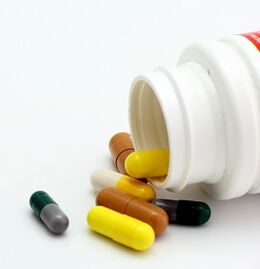
The urinary system is often exposed to infections.One of the common infectious diseases of the urinary tract is cystitis.What to do with cystitis in women?Pathology treatment should begin in the first symptoms.In the absence of therapy, the disease acquires a chronic form, which will be much harder to cope.
Factors and symptoms of provocation of the disease
Cystitis is a disease of an inflammatory-infectious nature that develops in the bladder area.The disease is most often diagnosed in women, but cases of cystitis in men are not excluded.
The reason for the development of the cystitis becomes a conventional pathogenic flora in the urinary trails of infection:
- streptococci;
- Escherichia sticks;
- staphylococci;
- and others.
The infection may be a consequence of disregarding the rules of hygiene norms for the care of the genitals or the result of the inflammatory process.Pathology is also sexually transmitted (ureaplasma or mycoplasma).
With cystitis, the patient has symptoms:
- pain in the urination process;
- sudden pain attacks in the lower abdomen;
- a sense of incomplete urine destruction;
- non -restraint of urinary fluid;
- The color of the urine is muddy;
- release of urine with blood;
- Temporary fever at 38 degrees.
In women, cystitis treatment is performed on outpatient basis taking drugs.When performing therapy at the initial stage, the disease can be eliminated without any complication.
Choosing Treatment Tactics

The effectiveness of therapeutic measures depends on how early the diagnosis is made.Determining the cause of the pathology (identification of the type of infection) also plays an important role.With the development of a chronic or acute form of cystitis, the medication may not have an effect, and the infection will progress further, provoking kidney and genitals.
The main task of specialists involved in therapy of the patient is to prevent the inflammatory process by destroying pathological microorganisms in the area of the Urinary Mucosa.
Choosing a medicine for cystitis is exclusively engaged in a doctor taking into account the characteristics of the disease in women:
- Type of infection;
- The degree of development of the disease;
- Individual body characteristics (age, gender, weight);
- presence of contraindications;
- The tendency to manifest the negative reaction.
An important point is to determine the response of pathological microorganisms to the composition of the drug.For this, a special study is conducted to help create the most appropriate medication.
Competent approach to the treatment of cystitis
Medication therapy includes a complex of medicines of different groups.A woman is described by cystitis tablets not only to destroy the infection but also to prevent inflammation as well as to reduce the intensity of the symptoms.
With complex therapy, medicines are recommended for groups:
- antibiotics;
- herbal preparations;
- antispasmodics;
- anti -inflammatory;
- Probiotics.
For more effective cystitis treatment in women, it is necessary, in addition to taking the drug, adhere to a special diet and observe hygiene measures.
Antibiotics
The main group of medicines that help prevent progression of cystitis infection in women are antibacterial medicines.
Antibiotics have a strong effect on body weight, so it is desirable to get them only as prescribed by a doctor.
Plants
Phytopreparations have a lower effect than antibiotics, however, their toxic effects are less, so their use is permissible during pregnancy (with the solution of a specialist).
In women, cystitis based on a natural composition is used in combination with antibiotics.Thus, treatment and restoration are faster.
Antispasmodics
With cystitis, the patient is often concerned about spasms in the urinary tract, especially during urination.To eliminate pain and cramps, a woman is recommended for cystitis drugs with a drotaver content.
Taking drugs containing Drotaverin is recommended for symptomatic therapy.A short -term reception is possible (2 - 3 days).
Anti -inflammatory drugs
In addition to antibiotics, anti -inflammatory drugs that prevent the development of complications, especially with the increased risks of kidney inflammation, may be prescribed to a patient with cystitis.
Anti -inflammatory group drugs are often prescribed for the administration of a time with increased intensity of symptoms (pain or fever).
Probiotics
The use of antibiotics in most cases leads to violations of stomach functionality due to the effects of medication on the walls of the gastrointestinal tract.To facilitate the functioning of the digestive tract for the treatment period, a common consumption of probiotics has been described.
Taking probiotics reduces the risk of a negative reaction to medicines from the gastrointestinal tract.
Contraindications and side effects
Anydo medicine for the treatment of cystitis in women should be selected taking into account possible contraindications.In the process of therapy, the patient can also manifest symptoms of a negative response, the cause of which are contraindications, exceeding the recommended dose or a potential individual reaction to the body to medication.
Contraindications:
- individual sensitivity to the ingredients of the ingredient;
- a number of chronic diseases;
- damaged renal or liver functions;
- Problems of the central nervous system.
Most medicines are not recommended to take during pregnancy or breastfeeding, as well as at the age of 18 or after 60 years.
Side reaction:
- disorder of the gastrointestinal tract (diarrhea/constipation, nausea, abdominal pain);
- throws into blood pressure, tachycardia and other disorders of the cardiovascular system;
- headache or staggering periods;
- depressive states, or mood swings;
- allergic reaction to the skin;
- Change of urine color (bright yellow).
Taking medicines in the presence of contraindications can provoke the development or deterioration of concomitant diseases.With an adverse reaction, the patient may be prescribed symptomatic therapy.
Proper food during treatment

To accelerate cystitis treatment and prevent complications regarding the use of drugs, it is necessary to observe a diet that restores the mucous microflora and urine functionality.
For use it is recommended:
- a large number of fruits as well as vegetables;
- fruit drinks, green tea or freebies (without sugar);
- Nearby cereals.
Carrots, cabbage, squash, asparagus, bran and cedar nuts should be included in the diet.
With cystitis, the consumption of any salt that has an irritating effect on the bladder walls should be excluded.
Alsosh also undesirable to use:
- spices;
- canned food;
- smoked meat;
- yogurt;
- Sharp dishes.
The attending doctor recommends the correct diet or may be referred to a nutrition.
Treatment with cystitis medication should not begin without prior consultation of a physician who creates an individual treatment scheme for each woman.
























